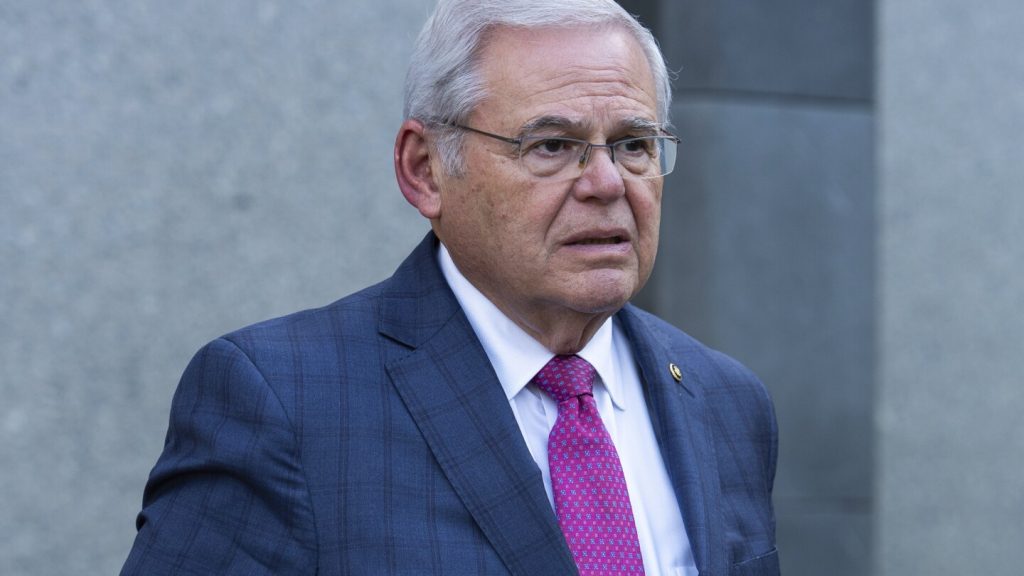The trial of Sen. Bob Menendez hit a snag as jurors were stuck in an elevator during a break, leading to a weeklong break in the proceedings. Jurors were moved to a different assembly room due to flooding in their usual room, with the mishap adding a humorous twist to an otherwise tense trial. Prosecutors have been slowly building their bribery case against Menendez and two co-defendants, accusing them of accepting bribes in the form of gold bars, cash, and a car. However, the defense maintains that the interactions were normal for a politician and his constituents, denying any wrongdoing.
Witnesses, including a former State Department employee, testified to Menendez’s alleged use of his powerful position as chairman of the Senate Foreign Relations Committee to benefit Egypt in exchange for bribes. Prosecutors claim that Menendez helped secure a lucrative monopoly for one co-defendant to export meat to Egypt, in exchange for bribes. Menendez, who was forced to step down from his position after his arrest, faces charges of bribery, extortion, fraud, obstruction of justice, and acting as a foreign agent of Egypt. The trial has shed light on the inner workings of political power and influence in Washington.
As the trial progresses, the courtroom drama has unfolded with a mix of serious legal arguments and lighthearted moments, such as the elevator mishap that led to a week-long break in proceedings. Menendez, a 70-year-old Democrat from New Jersey, has refused to bow to pressure to resign from the Senate despite the charges against him. The defense team continues to argue that Menendez’s actions were within the bounds of normal political behavior and denies any criminal activity. The trial has drawn attention to the intersection of politics, money, and influence in the nation’s capital.
The case against Menendez highlights the complexities of political corruption and the challenges of proving guilt beyond a reasonable doubt in such cases. The prosecution has presented evidence of financial transactions, favors done for foreign governments, and the exchange of valuable assets, all in an attempt to establish a pattern of bribery. Menendez and his co-defendants maintain their innocence, insisting that their actions were legal and ethical. The trial has become a high-profile test of the justice system’s ability to hold elected officials accountable for their actions.
Despite the legal battle unfolding in the courtroom, the trial has broader implications for public trust in government and the integrity of elected officials. If Menendez is found guilty, it could have a significant impact on the political landscape in New Jersey and beyond. The trial has become a focal point for discussions about the influence of money in politics and the need for greater transparency and accountability in government. As the case continues to unfold, all eyes will be on the outcome and its implications for the future of political ethics and governance.
As the trial moves forward, both the prosecution and the defense are preparing to present their cases and arguments before the jury. The coming weeks will be crucial in determining the fate of Menendez and his co-defendants, as well as the broader implications for political corruption and accountability. The trial’s twists and turns, from elevator mishaps to witness testimonies, will continue to captivate observers and shed light on the inner workings of power and influence in Washington. The outcome of the trial will have far-reaching consequences for the future of political ethics and governance in the United States.


